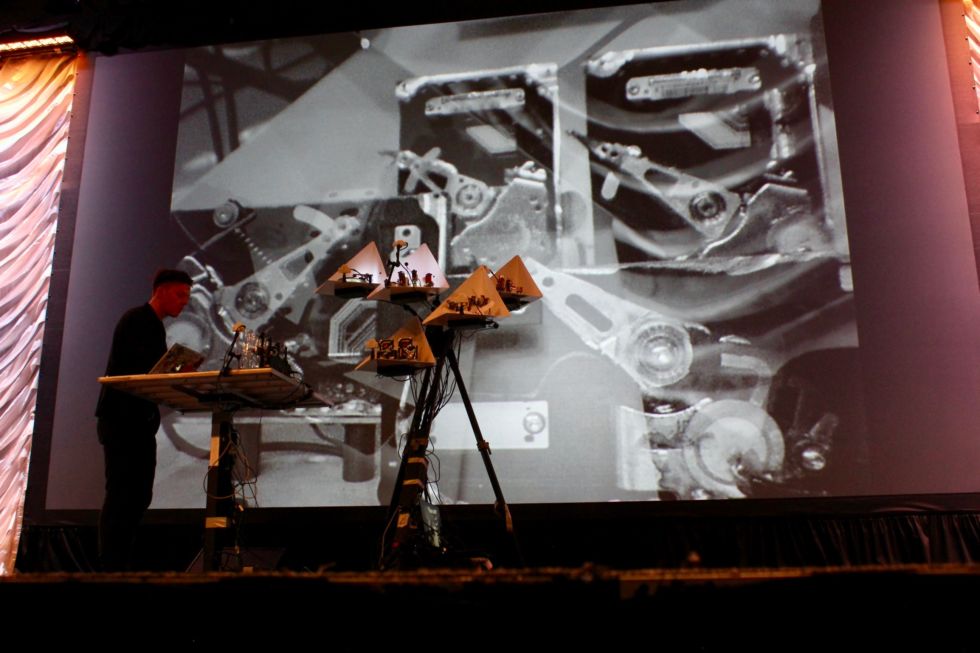You call that EDM? Moritz Simon Geist’s robots make the most technical techno

Electronic engineer/robot-musician conductor Moritz Simon Geist performs at the SXSW Innovation Awards. [credit: Nathan Mattise ]
AUSTIN, Texas-If you find Moritz Simon Geist's "Entropy" on Spotify, you might think nothing of it. The song is built upon repetitive, droning phrases that layer upon each other in ways you can't help but move your head to. Along with the rest of the tracks on The Material Turn, it wouldn't be out of place as deep cuts in the DFA Records catalogue, but they're less obviously electronic-no soaring synths or flourishes of rhythmic glitches here. Instead, "Entropy" has that breathy groove of an early song from The XX along with an overall industrial aesthetic like what music fans loved about Nine Inch Nails. "Entropy" is a dance track, but sinister, something that could soundtrack a highly stylized sci-fi flick or a dungeon level in a cool side scroller.
All that to say, Moritz Simon Geist wrote a catchy song. But what makes this remarkable is-unlike Hot Chip or Trent Reznor or whoever-Geist's music doesn't start from a synthesizer or emanate from his computer. He's "the world's only techno producer playing entirely with his self-made futurist robots," as the press release for his new EP, Speculative Machine, puts it. Glitchy tones on a track like "Maschyn" might come from a circuit board he printed himself. Sizzle sounds that listeners are accustomed to hearing from cymbals instead arrive from controlled bursts of pressurized air. The eerie melody of "Entropy" literally utilizes one of the oldest forms of a DIY instrument: water glasses filled with liquid to produce different tones, only this time they're played by a motorized set of mallets. And unless you see him performing live-as several new fans did during Geist's seven-performance run at SXSW 2019-you may never know something extraordinary is taking place.
Moritz Simon Geist's demo video for his music, showcasing the track "Entropy."
"There's a lot of experimental artists that put a lot of stress on the experimental part. For me, the music has to stand on its own," he tells Ars. "This artwork has a technical aspect to how it's made, but it has to be really good content-wise. I want to make this music good and on the same level as someone with a computer or synthesizer would program music. In the end, mine's just made with robots, of course-and they add different layers or special sounds you can't replicate with a synth or maybe replicate at all."
Read 12 remaining paragraphs | Comments